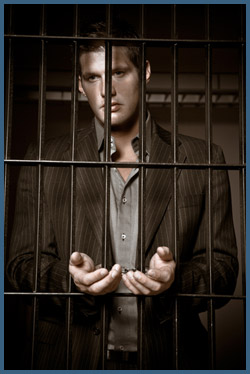
Our law firm’s skilled criminal defense attorneys will defend your rights against burglary, robbery, grand theft, petty theft or larceny charges.
At Gupta & Trujillo, our dedicated criminal defense lawyers can help you through your theft crimes throughout Southern California, including Orange County, Los Angeles, Riverside, the Inland Empire and San Diego. Contact our office for a free consultation.
At Gupta & Trujillo, we aggressively and diligently work with you, prosecutors, and judges to reduce, remove, or dismiss your theft related conviction(s). Our compassionate attorneys understand how a theft related conviction may harm your employment status, the likelihood of gaining future employment, state licensing requirements, or your immigration status. A theft related conviction can affect you in the following ways:
-
Theft related convictions may appear on an employment related background checks;
-
State license boards may deny a state license or certification because certain theft related convictions are defined as “crimes involving moral turpitude;”
-
“Crimes involving moral turpitude” have serious immigration consequences at all stages of immigration proceedings making you ineligible for cancellation of removal, visas, an adjustment of status, and naturalization.
California Grand Theft and Petty Theft Laws
Theft, also known as larceny, is the unlawful taking of money or property from others. Theft is one of the most frequently commited crimes in the United States. California's theft laws are an expansive and complex area of law. California divides theft into two categories:
-
Grand theft: under Penal Code section 487, grand theft is the stealing of money, labor, real or personal property exceeding more than nine hundred and fifty dollars ($950.00) in value. You may be charged with a felony or misdemeanor. California Penal Code 487 also regulates grand theft of a firearm, which is always charged as a felony, and grand theft of a vehicle; and
-
Petty theft: under Penal Code section 484, petty theft is the stealing of another person’s property not exceeding nine hundred and fifty dollars ($950.00) in value. It usually charged as a misdemeanor. A second offense can be charged as a felony.
California Burglary Laws
Under Penal Code section 459, burglary is an entry into a specified premises, structure, and vehicle with the intent to commit grand or petty theft or any other felony while inside. Unlike common-law burglary, California’s burglary laws do not require breaking into a premise; entry into the premise is sufficient. Penal Code 461 punishes burglary as follows:
-
Burglary in the first degree is punishable by imprisonment in a state prison for two, four, or six years.
-
Burglary in the second degree is punishable by imprisonment in the county jail or state prison not exceeding one year.
NOTE: When the judge finds that it is in the best interest of justice, the court may grant probation for certain burglary offenses.
California Robbery Laws
Under Penal Code section 211, robbery is the felonious taking of personal property of another against his or her will with the intent to permanently deprive him or her of their property. Robbery includes the elements of both theft and assault and is punishable by imprisonment in state prison.
NOTE: The offense of robbery is not complete until the stolen property has been carried away to a place of temporary safety.
California’s Receipt of Stolen Property Law
Under Penal Code 496, you may be found guilty of receipt of stolen property if you receive, bought, concealed, sold, or withheld stolen property. This law requires dealers and collectors of merchandise or personal property to make a reasonable inquiry to determine whether property is stolen.
NOTE: California law creates a distinction between concealing and receiving stolen property. If you obtain property and find out later that it is stolen property, you may be found guilty for concealing stolen property.
California’s Three Strikes Law
California’s Three Strikes Law is modeled after the baseball concept “three strikes and you’re out.” The law seeks to punish third time felony offenders with lengthy prison sentences anywhere between 25 years to life in prison. At Gupta & Trujillo, we keep in mind that every felony conviction counts. Our aggressive legal strategies are designed to protect you from California’s Three Strikes Law. |